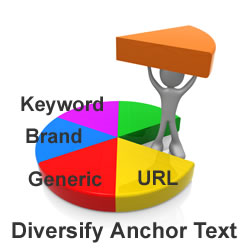Understanding Backlinks

What Are Backlinks
Backlinks are a very simple concept.
They are just incoming links to a website or webpage.
Before the time of the search engine backlinks were extremely important as they were the primary method of navigation on the internet. But they still have significance even today.
Backlinks are the backbone of many search engine optimization techniques.
The number of backlinks and depending on this and other factors it is a rough indicator of how popular a website is.
If we don't consider search engine optimization we can't take a page is a rough indicator of how popular a website is.
In addition to that backlinks are a measure of who is paying attention to that particular site.
If we think from the basic link terminology, a backlink can be defined as any link, received by a web node where a web node is a web page, directory, website, or top level domain, from another web node.
Backlinks are also known as incoming links, inbound links, inlinks, and inward links.
Search engines use backlinks as one of the most important ways to judge how popular a website truly is to analyze the backlinks pointing to that website. If we take search Giant Google for instance, their page ranks system notes that a backlink from site A to site B be the equivalent of a vote from site A to site B.
This knowledge has resulted in the birth and fueling of the phenomena known as link spam. Where someone places large numbers of backlinks to a site regardless of the state of the originating site.
However many websites employ various Search engine optimization techniques in order to increase the number of backlinks that come back to their site.
One of the most common ways is that called linkbaiting. Here the site will place sometime or news piece that is exclusive and one that everyone wants to know. Then everyone from the other sites wills backlinks because they will have to backlinks in order to link to the item.
Backlinks themselves have certain amounts of value. Backlinks from high quality sites with good traffic and great reputations are highly prized and valuable. If both the sites have similar topics and have content geared towards the said topic, such backlinks are considered to be very highly valuable.
A backlink could be considered the equivalent of an editorial vote for the webpage or website receiving the link from the website that is granting the backlinks. Another part of the backlinks is the anchor text on the links.
With the creation of Web 2.0 getting backlinks have now become easier than ever before.
The most popular sites for this would have to be.
- Hubpages
- Squidoo
- Wikidot
- Weebly
- WikiSpaces
- Tumblr
Most of these sites sites have an interactive nature to them which makes them ideal for posting up links in comments and widgets and similar places.

What Form Of Link Building Do You Use
What Form Of Link Building Do You Use In Your Online Business?
What Is Contextual Link Building
Contextual link building is all about creating effective links as well as more targeted traffic.
The visitors to the website can read the link before clicking onto the main page.
The main benefit of contextual link building is that it brings visitors for which the website has been created for instead of just creating traffic.
Contextual link building also creates an interest amongst website users who would visit the site out of curiosity.
Contextual link building also further helps website users to actual visit your site with the intention of reading the content.
Search engines gain benefit too through contextual link building. Through contextual building, search engines can analyze the content and registers accordingly.
Contextual link building can be used in various forms such as articles, adverts, websites, blogs and forum signatures to name a few.
Articles can gain a lot of attention through contextual link building. Contextual link building helps readers to get an insight as to what is in store.
Furthermore it attracts the targeted traffic that you have in mind plus give reader's the experience to browse through articles to get the information that they are after.
Adverts can also benefit through contextual links. This type of link building is not restricted to articles or written form of communication.
If you have a text based advert, contextual link building is ideal. By using attractive keywords and enough information the targeted audience can be attracted.
By using contextual link building for websites, it can keep attracting visitors to your site. By using eye catching words or pictures you could make people stay on your website longer. This will help you to market your products easily. This will also create a strong relationship between the users and your site.
Contextual link building is also crucial for blogs. When a question is being left by a blogger, the answer could be typed as a contractual link. This will create a targeted audience. The more leads you get, the more traffic you create for the blog. Forum signatures can also use contextual link building as a tool to create traffic. This creates a forum for forums and the popularity will increase.
Here are some advantages one can benefit from using contextual link building; the first and foremost fact is that it creates traffic to the website. People become aware of your website hence popularity increases. Through search engines, the visibility of your site will increase. Helps you to saves money as well as time. Furthermore your website gets enough exposure.
Contextual link building is a great tool for website owners and should be used in a manner in which it proves to be useful.
If used effectively, it can bring about traffic as well as help you to market your products or services. The content however needs to be well written and accurate so that you bring about the targeted traffic.

Why You Need To Build One Way Links
In order to improve search engine rankings, one way link building, is of prime importance. Such links should ideally direct the reader to the website in question, by using appropriate keywords in the anchor text.
However sine the introduction by Google of the Panda and Penguin updates you need to be aware of what anchor text you are using, as an exmple it is now coming to light that you need to be using your brand name (website name) in the anchor as well as generic terms and then a mix of your preferred keywords.
Back linking is one of the most sought after methods of one way link building. This refers to a set of inbound links, which are then used to evaluate the success or popularity of the website in question.
Posting links on other web pages which deal with similar subject matter also merits attention, as this will attract a target audience that will be actually be interested in what the said website has on offer. This method of one way link building ensures that the website traffic directed to the afore mentioned webpage, is not just high in terms of volume but high in terms of quality, too; as these visitors would be more inclined to purchase the goods or services that are on offer, here.
Another popular method of one way link building is article submission. As a rule of thumb, such articles should be relevant, informative and consist of non-repetitive information, if it is to make worthwhile reading.
Here Is A List Of The Best Article Directories To Start
- EzineArticles
- Articlebase
- Goarticles
- ArticleAlley
- ArticleDashboard
On a similar note, commenting on blogs, too, is another effective method of one way link building. Savvy web designers also use e-books to foster link generation.
Manual directory submission is another mode of engaging in one way link building. It is always prudent to ensure that these directories are "search engine friendly", so that the chances of rejection are slim. Ever evolving and continually updated directories would generally provide a larger client base, to those interested.
Another one way link building technique that merits consideration is social bookmarking.
Here, users save links to web pages that are of interest, and these can then be shared with a selected group of people, over certain networks; or with the public at large, as the case, maybe.
A List To Get You Started
- Google Plus (you can add keyword rich do follow links to your profile)
- Facebbok
- StumbleUpon (Use with Caution)
Contributing to online discussion sites, popularly referred to as "forum posting" is another method of engaging in one way link building. Spamming, double posting the same message and such like, are generally not recommended, as this would merely alienate genuine web based customers and such methods would be frowned upon by certain search engines, too.
When concentrating on one way link building, it is always best to consider the presentation and order of selected keywords, as "search terms" follow a certain trend, over a given time period. Therefore engaging in some well-directed research might prove to be useful over the long haul.
One way link building is indeed an effective tool in search engine optimization. Such links need to be developed in a natural manner, for best results, if the website in question is to be a success.










